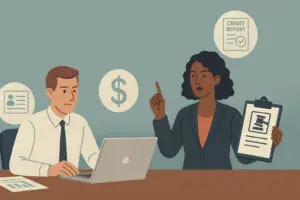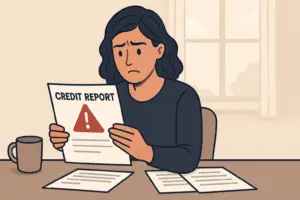How does the law prevent creditors from harassing or abusing me?
Too often, people who are overwhelmed by debt feel like they’re at the mercy of debt collectors. But, federal law protects debtors from harassment and abuse. When debt collectors cross the line, you can fight back—even if you have large debts or have missed several payments. Whether you’re in debt because you lost your job, had a medical crisis, or simply didn’t manage your credit cards well, you’re entitled to be treated decently.
If collection agencies or debt buyers are harassing you, an experienced consumer protection attorney can help.
Federal Law Protects You from Debt Harassment
In 1978, Congress passed The Fair Debt Collection Practices Act (FDCPA), forbidding debt collectors from harassing or abusing debtors. The law not only put strict limitations on third-party debt collectors, but allowed consumers to recover damages when debt collectors violate the law.
Of course, this doesn’t mean that unfair debt collection practices abruptly stopped. Unfortunately, many debt collectors violate the law. However, the FDCPA gives consumers a way to fight back against unscrupulous debt collection practices.
Know Your Rights under the FDCPA
The more you understand your rights, the better prepared you will be to respond to collection agency and debt buyer harassment. The following telephone tactics are against the law:
- Repeated phone calls intended to annoy or abuse
- Phone calls between 9 p.m. and 8 a.m. in most cases
- Use of obscene or profane language
- Threats of violence or other harm
- Anonymous debt collection calls
- Phone calls to your workplace if your employer objects
The FDCPA also forbids debt collectors from publishing your name publicly as a person who refuses to pay his or her debts and from using false, deceptive, or misleading practices regarding the debt. False, deceptive, or misleading practices include:
- Misstating the amount owed
- Falsely claiming that the person speaking to you is an attorney
- Threatening to have you arrested
- Making threats they can’t legally carry out
- Making threats they do not intend to carry out
When you’re having trouble with debt collectors, it is in your best interests to keep a contact log. Your log should include information like:
- The date and time of the call
- The number the debt collector called you at if you have more than one line
- The number the debt collector called from
- How the debt collector identified himself or herself
- A brief summary of the conversation, including any foul language, threats, or other possible violations
This information will help your consumer protection attorney build a case on your behalf, should legal action become necessary.






